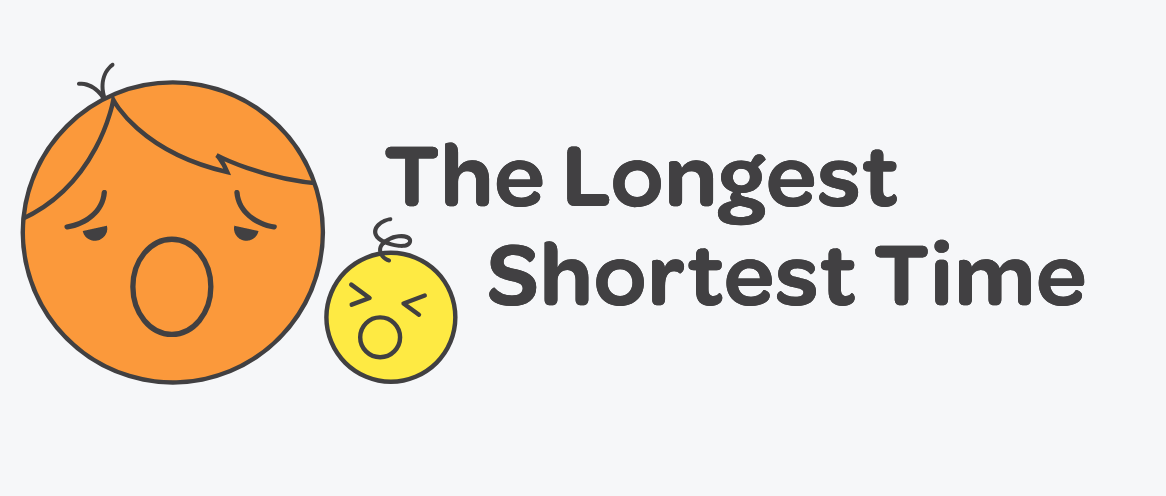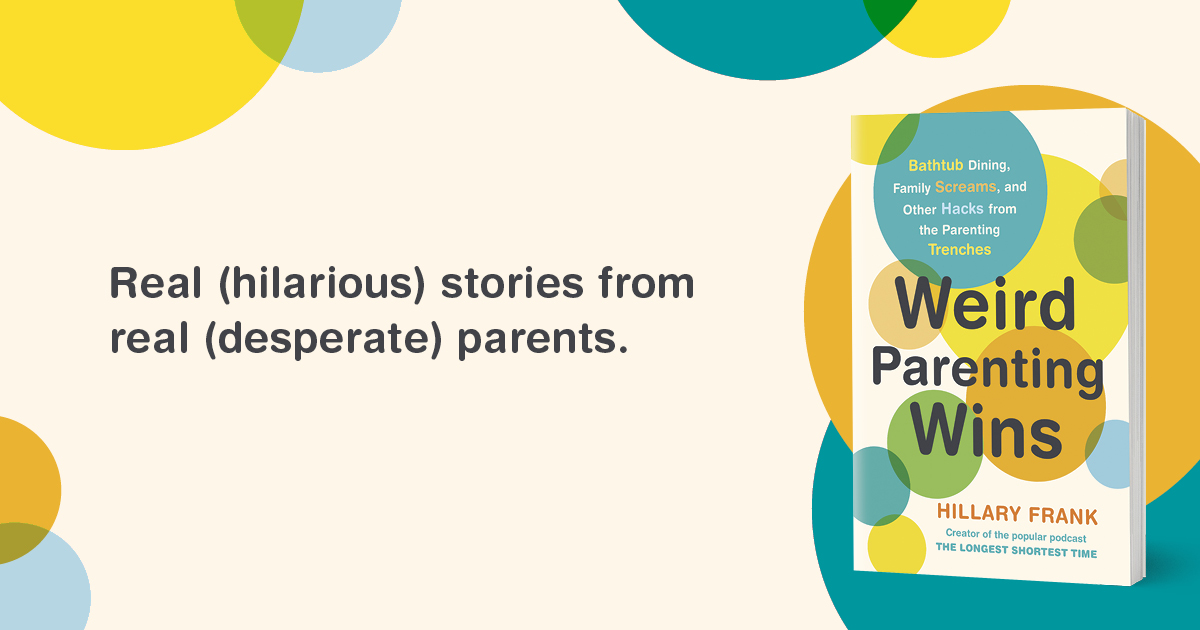How to Record a Great Interview with Your Kid (At Any Age)
Art by Claire Astrow
We are so thrilled to have trailblazer Hillary Frank—of the absolutely laugh-out-loud, pee-in-your-pants, heartfelt, insightful, cutting-edge, quirky, and thought-provoking parenting podcast The Longest Shortest Time—here with a guest post that is sure to inspire you to capture some archival-worthy recordings of your wee ones at their most confessional/talkative/silly/sweet/________ (fill in the blank with your child’s mood of the moment). If you haven’t heard Hillary’s podcast yet, do it! Also check out her powerful op-ed in The New York Times, “The Special Misogyny Reserved for Mothers,” and her recent interview with Terry Gross on Fresh Air. Without further ado, here’s Hillary on How to Record a Great Interview with Your Kid (at Any Age).
Thank you, Hillary!!!
On the eve of my little brother’s second birthday, he refused to go to sleep. He had THINGS to say—about our aunts and uncles and cousins and what color shoes they all wore. I was seven at the time, passed out in my bedroom, but I know this happened because instead of scolding my brother for being a chatterbox way past his bedtime, my parents grabbed a tape recorder and captured it all on cassette. After naming every relative he knew, my brother went on to proclaim that our Florida-based grandmother lived in “her ammie.” (Replace “her” with “my.”) He spoke enthusiastically about the alligator toothbrush he’d just gotten from the dentist. And he fervently tried to get my mom to remember something he called the “wekka fwabeewing.” For around twenty minutes, my mom took guesses at what he was saying; he’d yell No!; she’d try to change the subject; he’d bring it back to the wekka fwabeewing. Finally, after a lot of exasperation on both sides, my mom figured it out. My brother was talking about the Levitt Pavillion, a local outdoor performance venue where he’d seen a kids’ show.
The next morning, my parents played me the recording and challenged me to guess what a wekka fwabeewing was. I got in on the first mention. After all, I was the one who had taught him to say it. My parents and I laughed over how cute my brother was, attempting such big words and kinda, sorta pulling it off. Then the tape went in a drawer.
When I was a teenager, I went through my old cassettes, listening to them one by one. And I came across the wekka fwabeewing tape. I’d forgotten about it, and decided I’d play it for my mom on Mother’s Day. I knew she’d enjoy it, but I did not expect the nonstop weeping-nose-blowing-laughter that followed soon after I hit play.
I think the reason my mom had such a big, emotional reaction to the recording is about more than the fact that it captured a funny moment; it’s a moment that reveals a lot about both my brother and my mom. You can hear his determinated persistence even at the tender age of two, his unwillingness to let anyone off the hook. You can hear her patience through exhaustion and frustration… and eventually you can hear that patience wearing thin. In the end, you can hear her relief—”Mommy’s a little dumb, but she finally got it”—followed by his relief—”Mmhmm”—that they finally understand one another and can shut off the recorder and go to bed.
Recording your kid can be a great way of capturing the realness, the rawness, the connection, and the disconnect, that marks every fleeting stage of your relationship with them. These moments can make for great keepsakes to be listened to for a rolicking good time with the entire family—or when you’re an empty-nester and need a good cry.
Kids can be resistant to being recorded, especially if you frame it formally as a sit-down interview. And given the ease of voice memo recording on phones and tablets, there’s no reason not to be spontaneous about recording conversations with them. But not every conversation is going to yield archive-worthy material. After working as a radio journalist for nearly two decades, mostly interviewing parents, teens, and young children, I’ve developed tricks for getting kids of all ages to talk. Here are some of them:
Technical setup. First things first: let’s make this audio listenable. Get yourself in a quiet room, preferably one with a rug. Steer clear of refrigerators, air conditioners, and noisy vents. If you’re recording on a phone, remember that your microphone is at the bottom of your device, so you’ll want to turn it upside down and aim that mic at your kid’s face—ideally a few inches below their chin. But if they’re loud, you can pull back a bit to prevent the sound from distorting. If your kid finds this closeness intimidating, it’s fine to keep the mic farther away; just don’t cover it up.
Littles. Catch your toddler or preschooler when they’re already in a chatty mood. Are they telling you their crazy theory on how babies are made? Making up a story about a giant bunny who eats teachers? It’s time to press record! Ask them follow-up questions, with the goal of getting a fuller picture of their interpretation of the world. “Oh, babies float down to Earth from bubbles in the sky. What color are the bubbles? How big are they? Who made the bubbles in the first place? What happens if they pop?”
Or, turn the mic around and encourage them to ask *you* questions. They’re more likely to ask you whether a dinosaur goes to heaven or hell than what made them go extinct. And whether or not you believe in heaven and hell, that question will get a more interesting reaction out of you than the extinction one.
We made a whole series based on this idea at The Longest Shortest Time called Kids Ask Unanswerable Questions. This episode with comedian Chris Gethard includes the dino question, and many more mind-blowing examples.
Middles. Would-you-rather questions are a hit with adults and kids alike, but I’ve found that kids are way better at them. If your grade-schooler is resistant to spilling their guts to you, ask them if you can record yourselves playing a few rounds of Would You Rather. My daughter’s best one: Would you rather eat a skunk or poop in front of a thousand people? Just imagine where the conversation could go from there!
Sometimes talking in an unusual place or engaging in another activity can help get a kid to open up: huddled under the blankets in bed, sitting on the floor doing a jigsaw puzzle, in the basement folding laundry. Anything to make this “interview” not feel like a formal Interview.
Teens. Teenagers are my very favorite people to talk to. They are passing from childhood into adulthood, and you can hear that tension in almost everything they say. With teens, you can ask big, open-ended questions: How does the world work? What do all children need to know? What is love? Most of them will be more than happy to philosophize. Here’s an example of a story I did, asking high school seniors if they thought the robot babies in health class were preventing them from having underage sex. It surprised me how profound these kids’ thoughts could be over a hunk of plastic.
And here’s one in which teens give advice to parents—on dating, school lockdowns, and what to name a pet. I’ve found that lots of teens enjoy dishing out advice. In their answers, you can hear them sorting out what they make of relationships and the world around them. Watch out, though, for correcting your teen or judging their answers; “parenting” them during a recording session will likely make them shut down. Make them feel heard and let them go on a rant if that’s what they want to do.
Remember, the goal here, no matter the kid’s age, is not to get them to “open up”; it’s to capture something real. Maybe that means you let *them* ask the questions. Maybe that means you’re both lying on the floor talking about how tired you are. Maybe that means letting them whisper the entire time (one of my favorite stories to report was all about quiet kids). And if they really don’t want to be recorded, don’t push it; a forced recording is not going to be a good recording. Put the control in their hands. Tell them that sometime in the next week, you want them to pick a time to hit record. To capture what you both sound like at the ages that you are. Because neither of you will ever be this age again. And wouldn’t it be cool to listen back in ten years to what you sounded like together and hear how you’ve changed?
The night my mom spontaneously decided it would be fun to record my brother back in the 80s, she had no idea how emotional it would make her to hear it years later. But she also had no idea what an impact that recording would have on me. There was a time in my twenties when I listened to the “wekka fwabeewing” tape obsessively. I memorized certain passages—the exact intonation in my brother’s tiny voice as he passed in an instant from curious to outraged. It’s that kind of vulnerability that I chase every time I press record at my job.
Hillary Frank is the creator of The Longest Shortest Time podcast. Her most recent book is Weird Parenting Wins: Bathtub Dining, Family Screams, and Other Hacks from the Parenting Trenches.
A fave mus-try weird parenting win from her book:
What’s your #weirdparentingwin ? Head to our insta or The Longest Shortest Time and let us know.
Now go dust off that tape recorder or download a voice memo app and get recording!






